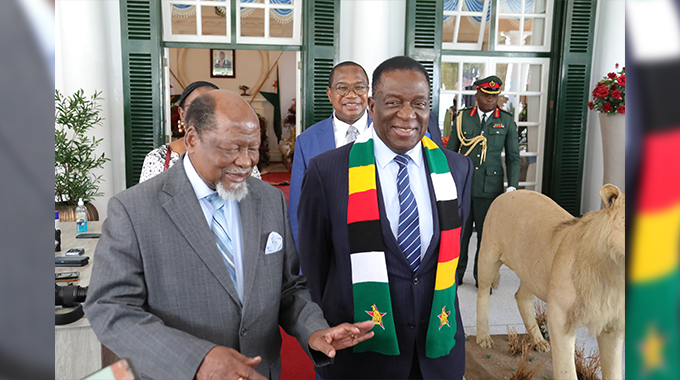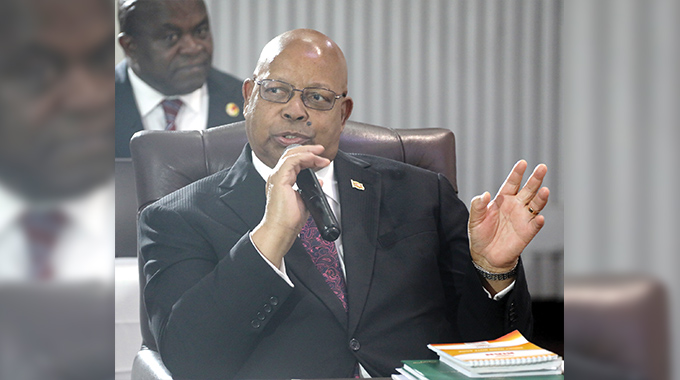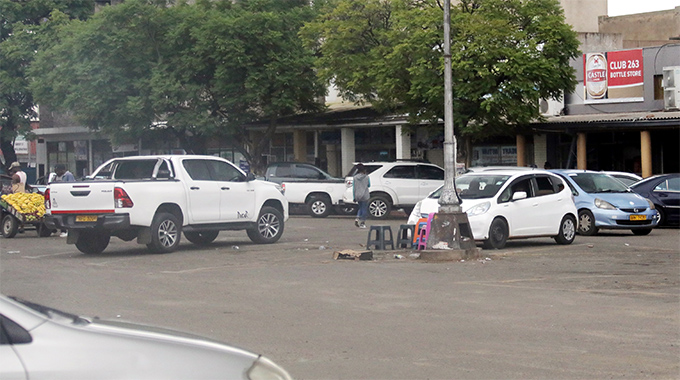Bulawayo honours GBV victims, survivors in a moment of silence

Sikhumbuzo Moyo, [email protected]
GENDER-BASED violence (GBV) is a daily reality for many people, who suffer physical, emotional, or sexual harm from their intimate partners, family members, or strangers. Some of them lose their lives or become disabled, while others endure the trauma in silence. Some of them are even forced to share a bed with their abusers, or become abusers themselves in revenge. Some face ridicule or rejection from their families or communities when they report the abuse.
The statistics are alarming. According to the police, from January to October this year, 18 907 cases of domestic violence were recorded across the country, compared to 17 244 cases in the same period last year. There is also an increase in the number of men reporting abuse cases, with 2 463 reports received in the first nine months of this year, as compared to 1 782 last year. Police statistics further show that 46 people lost their lives as a result of domestic violence, 31 of whom were women. Globally, an estimated 736 million women — almost one in three — have been subjected to physical and/or sexual intimate partner violence, non-partner sexual violence, or both, at least once in their lives.
On November 25, Zimbabwe joined the rest of the world to mark 16 days of activism against GBV against women and girls, which this year is running under the theme; “Unite! Invest to prevent violence against women and girls”. The theme calls for collective action and investment in prevention strategies to stop violence from occurring in the first place.
Last Wednesday, Bulawayo observed a full minute of silence in remembrance and honour of victims and survivors of GBV during commemorations held at Cowdray Park terminus shopping centre. Leading the silence was the Bulawayo Minister of State for Provincial Affairs and Devolution Judith Ncube.
“May we all rise for a moment of silence in respect of all the girls, women, boys and men who lost their lives due to gender-based violence and child marriage,” said Minister Ncube.
The silence was profound and poignant, as Bulawayo and Cowdray Park in particular paid an emotional and silent tribute to those who have gone and continue to go through the barbaric act of violence.
“This year’s theme calls upon all of us to step up and support different prevention strategies to stop violence from occurring in the first place. GBV is escalating countrywide and this province is no exception,” said Minister Ncube.
In his welcome remarks at the commemorations, Permanent Secretary in the Ministry of Provincial Affairs and Devolution in Bulawayo, Paul Nyoni said the Cowdray Park suburb was specifically chosen as the venue for the commemorations because of the high prevalence of GBV cases. Police are on record saying that the suburb has the highest number of GBV cases reported in the city this year, with more than three cases reported daily.
Nyoni said the commemorations were a means of taking stock of GBV and remembering the victims, while celebrating with those who have come through the abuse.
“We are here to remember, celebrate and give assurance to the victims that help is not far, help is available,” said Nyoni.
On the same occasion, the ZGC deputy commissioner Obert Matshalaga said the increase in GBV cases was extremely worrying, more so despite the country having enacted laws that clearly and explicitly stated that the practice was frowned upon. He called on the Judiciary to be ruthless when handling cases of GBV.
The Multiple Indicator Cluster Survey of 2019 shows that 34 percent of girls in Zimbabwe are married before the age of 18 with 5 percent married before their 15th birthday while 2 percent of boys are married before their 18th birthday.
While child marriages remain outlawed in the country, 2022 ZimStat Census unearthed that 133 455 women aged 20-24, were married-off before attaining the age of 18.
“Child marriage is actually on the increase with some cases resulting in the death of young girls while giving birth, which is unacceptable. What is more disheartening to note is that in most of these cases parents or close relatives are found at the centre either as perpetrators or as facilitators of the abuse,” Minister Ncube told the gathering.
The 16 Days of Activism against Gender-Based Violence is an international civil society-led campaign that takes place each year. It commences on 25 November, the International Day for the Elimination of Violence against Women and ends on 10 December, Human Rights Day, indicating that violence against women is the most pervasive breach of human rights worldwide. It was originated by activists at the inaugural Women’s Global Leadership Institute in 1991. It is used as an organising strategy by individuals and organisations around the world to call for the prevention and elimination of violence against women and girls (VAWG).
In support of this civil society initiative, the United Nations Secretary-General launched in 2008 the campaign UNITE by 2030 to End Violence against Women, which runs parallel to the 16 Days of Activism.












Comments